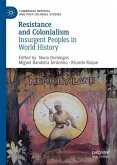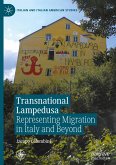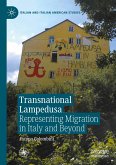- Broschiertes Buch
- Merkliste
- Auf die Merkliste
- Bewerten Bewerten
- Teilen
- Produkt teilen
- Produkterinnerung
- Produkterinnerung
This book examines Caribbean people resisting racial, political, and social oppression from the eve of the 1790s Haitian Revolution to the twenty-first century. Migrating rebels, shipments of newspapers, rumors, and acts of resistance themselves inspired people throughout the Caribbean who launched their own acts of defiance, illustrating the transnational nature of Caribbean resistance. Some people fought to be left alone, ungovernable, and masterless. Other people fought to free their ethnicity or race, their class, or their nation. Men and women employed a range of tactics from violent…mehr
Andere Kunden interessierten sich auch für
![Resistance and Colonialism Resistance and Colonialism]() Resistance and Colonialism76,99 €
Resistance and Colonialism76,99 €![Resistance and Colonialism Resistance and Colonialism]() Resistance and Colonialism61,99 €
Resistance and Colonialism61,99 €![The British Press, Public Opinion and the End of Empire in Africa The British Press, Public Opinion and the End of Empire in Africa]() Rosalind CoffeyThe British Press, Public Opinion and the End of Empire in Africa91,99 €
Rosalind CoffeyThe British Press, Public Opinion and the End of Empire in Africa91,99 €![The British Press, Public Opinion and the End of Empire in Africa The British Press, Public Opinion and the End of Empire in Africa]() Rosalind CoffeyThe British Press, Public Opinion and the End of Empire in Africa91,99 €
Rosalind CoffeyThe British Press, Public Opinion and the End of Empire in Africa91,99 €![Rome and Irish Catholicism in the Atlantic World, 1622-1908 Rome and Irish Catholicism in the Atlantic World, 1622-1908]() Rome and Irish Catholicism in the Atlantic World, 1622-190891,99 €
Rome and Irish Catholicism in the Atlantic World, 1622-190891,99 €![Transnational Lampedusa Transnational Lampedusa]() Jacopo ColombiniTransnational Lampedusa91,99 €
Jacopo ColombiniTransnational Lampedusa91,99 €![Transnational Lampedusa Transnational Lampedusa]() Jacopo ColombiniTransnational Lampedusa91,99 €
Jacopo ColombiniTransnational Lampedusa91,99 €-
-
-
This book examines Caribbean people resisting racial, political, and social oppression from the eve of the 1790s Haitian Revolution to the twenty-first century. Migrating rebels, shipments of newspapers, rumors, and acts of resistance themselves inspired people throughout the Caribbean who launched their own acts of defiance, illustrating the transnational nature of Caribbean resistance. Some people fought to be left alone, ungovernable, and masterless. Other people fought to free their ethnicity or race, their class, or their nation. Men and women employed a range of tactics from violent armed uprisings to fleeing repression and starting their own communities. Through song, language, religion and festivals, they maintained cultures and identities against oppressive norms that devalued or sought to destroy those cultures and identities. People declared strikes and riots against economic oppression. Women and mothers mobilized for their and their children's freedoms. Across the Caribbean, people confronted oppression and in so doing illustrated their humanity and agency.
Produktdetails
- Produktdetails
- Verlag: Palgrave Macmillan / Springer International Publishing / Springer, Berlin
- Artikelnr. des Verlages: 978-3-030-93011-0
- 1st ed. 2022
- Seitenzahl: 224
- Erscheinungstermin: 14. Juni 2022
- Englisch
- Abmessung: 235mm x 155mm x 13mm
- Gewicht: 347g
- ISBN-13: 9783030930110
- ISBN-10: 3030930114
- Artikelnr.: 62905400
- Herstellerkennzeichnung
- Springer-Verlag GmbH
- Tiergartenstr. 17
- 69121 Heidelberg
- ProductSafety@springernature.com
- Verlag: Palgrave Macmillan / Springer International Publishing / Springer, Berlin
- Artikelnr. des Verlages: 978-3-030-93011-0
- 1st ed. 2022
- Seitenzahl: 224
- Erscheinungstermin: 14. Juni 2022
- Englisch
- Abmessung: 235mm x 155mm x 13mm
- Gewicht: 347g
- ISBN-13: 9783030930110
- ISBN-10: 3030930114
- Artikelnr.: 62905400
- Herstellerkennzeichnung
- Springer-Verlag GmbH
- Tiergartenstr. 17
- 69121 Heidelberg
- ProductSafety@springernature.com
Kirwin Shaffer is Professor of Latin American Studies at Penn State University - Berks College, USA. He teaches courses on Latin American and Caribbean History, Latin American Studies, Global Terrorism, Tyranny and Freedom, Globalization, and Global Cinema.
1 A Popular History of Resistance across Borders.- Thinking About "Resistance".- If It's Not Rebellion, Is it Just Another Form of Accommodation?.- Culture and Resistance.- Transnational Resistance and Alternative Geographies.- Women and Resistance.- Some Cautionary Asides About Hero Worship and Resistance.- The Chapters Ahead.- Works Cited and Further References.- 2 Dèyè mòn gen mòn: The Haitian Revolution Throughout the Caribbean.- Indigenous and Slave Resistance before the Haitian Revolution.- On the Eve of the Haitian Revolution.- The Revolt of the Enslaved.- Threats from Napoleon and Citizen Toussaint.- Resisting Toussaint's State.- The French Invasion and the Declaration of Independence.- The New Country of Ayiti.- The Transnational Impact of the Haitian Revolution.- Inspiring Revolts around the Caribbean.- Haiti and Caribbean Political Radicalism.- Revolutionary Privateering.- Conclusion.- Works Cited and Further References.- 3 Liberating Ourselves: Slave Resistance and Emancipation.- Motherhood and Resistance.- Transnational Religion and Resistance.- Caribbean Resistance and Its Transnational Impact on the United States.- Transnationalism, Resistance, and Abolition in the French West Indies.- Resistance in the Spanish Caribbean, 1790s-1840s.- Rebellious Market Women of the Caribbean.- Conclusion.- Works Cited and Further References.- 4 Liberating Ourselves: Freedom Fighting after Slavery.-Haiti and Resistance during the Boyer Years.- Resisting British Apprenticeship.- Resisting Spanish Apprenticeship.- Free Worker Revolts, Protests, and Strikes.- Resisting Indentured Servitude.- Intra-Class Resistance: Workers Fighting Workers.- Morant Bay, Jamaica, 1865.- Cultural Resistance.- Conclusion.- Works Cited and Further References.- 5 Anti-Colonial Awakenings: The Dominican Republic, Puerto Rico, Cuba, and Panama, 1820s-Early 1900s.- Early Anti-Spanish Efforts in the Caribbean:El Águila Negra and Filibusters.- The 1860s War for Restoration in the Dominican Republic.- Transnational Anti-Colonialism: The Antilles for Antilleans.- Cuba's Ten Years War, 1868-1878.- The Little War in Cuba, 1879-1880.- The Cuban War for Independence, 1895-1898.- Banditry, Baseball, and Resistance.- Transnational Support for Independence.- The Spanish-American War and Its Aftermath.- Panamanian Independence.- Conclusion.- Works Cited and Further References.-6 Working-Class Resistance and Anti-Imperialism, 1900-World War II.- Transnational Anarchism Confronts US Expansion.- Resisting US Imperialism in Haiti, 1915-1934.- Resisting US Imperialism in the Dominican Republic, 1916-1924.- Caribbean Anti-Imperialist Leagues in the 1920s and 1930s.- Transnational Radical Support for Sandino's Anti-Imperialism.- Transnational Resistance in Imperial Black Contact Zones: Central America and Cuba.- Transnational Resistance in Imperial Black Contact Zones: The Great War and at Home.- Organized Labor and Resistance to British Rule.- Trinidad 1937.- Jamaica 1938.- Conclusion.- Works Cited and Further References.-7 Fighting Tyranny, Colonialism, and Imperialism at Mid-Century.- Resisting Dictators: Machado in Cuba.- Resisting Dictators: Trujillo in the Dominican Republic.- The Caribbean Legion Wages Transnational War Against Dictators.- Puerto Rican Nationalists and Anti-Colonial Resistance, 1930s-1950s.- Anti-Americanism at Mid-Century.- Anti-Colonialism and Decolonization in the British West Indies.- Fighting a Different Form of Colonialism in the French West Indies.- Resistance in the Dutch West Indies.- Conclusion.- Works Cited and Further References.-8 A Caribbean "Black Lives Matter": Black Consciousness and Black Power, Early 1900s-1970s.- Afro-Cuban Politics and the Partido Independiente de Color in the Early 1900s.- The UNIA and Transnational Black Consciousness, 1910s-1920s.- Black Consciousness Meets Marxism, 1920s-1930s.- The African Blood Brotherhood, 1919-1922.- Black Consciousness and Cultural Resistance, 1920s-1950s.- The Cultural Politics of Noirisme in Haiti: The Rise and Rule of Papa Doc.- Rastafari and Black Consciousness in Jamaica, 1930s-1970s.- Rasta and the Cultural Politics of Reggae Music in the 1970s.- Aimé Césaire, Frantz Fanon, and Walter Rodney: Intellectual Roots of Black Power.- Black Power across the Caribbean.- Black Power and the 1970 Trinidad Revolution.- Conclusion.- Works Cited and Further References.- 9 Hasta la Victoria Siempre: The Cuban Revolution Throughout the Caribbean, 1950s-1980s.- Urban and Rural Resistance Against the Batista Dictatorship.- Building the New Socialist Cuba.- Resisting the Revolution: Counterrevolutionary Violence.- Resisting Revolutionary Policies: The Politics of Childhood in the Early 1960s.- The Revolution Didn't Go Far Enough: Being Too Radical for the Revolution.- Against the Revolution, Nothing: Cuban Cinema and Revolutionary Politics.- Spreading Revolution.- The Grenadian Revolution, 1979-1983.- The Sandinista Revolution, 1979-1990.- Conclusion.- Works Cited and Further References.-10 Masses vs. Massa: The Ongoing Antiauthoritarian Struggle.- Fall of the Duvaliers and Transition to People's Rule in Haiti, 1980s-1990s.- Puerto Rican Nationalists, 1970s-2000s.- The Maroon War in Suriname, 1986-1992.- Abu Bakr and Trinidad's Muslim Revolt, 1990.- Colombian Revolutionaries, 1960s-2010s.- Transnational Chavismo and the Multipolar Axis Against Washington.- Dissent during Cuba's "Special Period," 1990s-2010s.- The 2009 Labor Uprisings in the French West Indies.- Resistance to Political and Natural Disasters in Haiti and Puerto Rico.- Indigenous Peoples' Resistance.- Resisting Sexual Violence.- LGBTQ Resistance to Homophobia and Injustice.- Reparations.- Works Cited and Further References.- Index.
1 A Popular History of Resistance across Borders.- Thinking About "Resistance".- If It's Not Rebellion, Is it Just Another Form of Accommodation?.- Culture and Resistance.- Transnational Resistance and Alternative Geographies.- Women and Resistance.- Some Cautionary Asides About Hero Worship and Resistance.- The Chapters Ahead.- Works Cited and Further References.- 2 Dèyè mòn gen mòn: The Haitian Revolution Throughout the Caribbean.- Indigenous and Slave Resistance before the Haitian Revolution.- On the Eve of the Haitian Revolution.- The Revolt of the Enslaved.- Threats from Napoleon and Citizen Toussaint.- Resisting Toussaint's State.- The French Invasion and the Declaration of Independence.- The New Country of Ayiti.- The Transnational Impact of the Haitian Revolution.- Inspiring Revolts around the Caribbean.- Haiti and Caribbean Political Radicalism.- Revolutionary Privateering.- Conclusion.- Works Cited and Further References.- 3 Liberating Ourselves: Slave Resistance and Emancipation.- Motherhood and Resistance.- Transnational Religion and Resistance.- Caribbean Resistance and Its Transnational Impact on the United States.- Transnationalism, Resistance, and Abolition in the French West Indies.- Resistance in the Spanish Caribbean, 1790s-1840s.- Rebellious Market Women of the Caribbean.- Conclusion.- Works Cited and Further References.- 4 Liberating Ourselves: Freedom Fighting after Slavery.-Haiti and Resistance during the Boyer Years.- Resisting British Apprenticeship.- Resisting Spanish Apprenticeship.- Free Worker Revolts, Protests, and Strikes.- Resisting Indentured Servitude.- Intra-Class Resistance: Workers Fighting Workers.- Morant Bay, Jamaica, 1865.- Cultural Resistance.- Conclusion.- Works Cited and Further References.- 5 Anti-Colonial Awakenings: The Dominican Republic, Puerto Rico, Cuba, and Panama, 1820s-Early 1900s.- Early Anti-Spanish Efforts in the Caribbean:El Águila Negra and Filibusters.- The 1860s War for Restoration in the Dominican Republic.- Transnational Anti-Colonialism: The Antilles for Antilleans.- Cuba's Ten Years War, 1868-1878.- The Little War in Cuba, 1879-1880.- The Cuban War for Independence, 1895-1898.- Banditry, Baseball, and Resistance.- Transnational Support for Independence.- The Spanish-American War and Its Aftermath.- Panamanian Independence.- Conclusion.- Works Cited and Further References.-6 Working-Class Resistance and Anti-Imperialism, 1900-World War II.- Transnational Anarchism Confronts US Expansion.- Resisting US Imperialism in Haiti, 1915-1934.- Resisting US Imperialism in the Dominican Republic, 1916-1924.- Caribbean Anti-Imperialist Leagues in the 1920s and 1930s.- Transnational Radical Support for Sandino's Anti-Imperialism.- Transnational Resistance in Imperial Black Contact Zones: Central America and Cuba.- Transnational Resistance in Imperial Black Contact Zones: The Great War and at Home.- Organized Labor and Resistance to British Rule.- Trinidad 1937.- Jamaica 1938.- Conclusion.- Works Cited and Further References.-7 Fighting Tyranny, Colonialism, and Imperialism at Mid-Century.- Resisting Dictators: Machado in Cuba.- Resisting Dictators: Trujillo in the Dominican Republic.- The Caribbean Legion Wages Transnational War Against Dictators.- Puerto Rican Nationalists and Anti-Colonial Resistance, 1930s-1950s.- Anti-Americanism at Mid-Century.- Anti-Colonialism and Decolonization in the British West Indies.- Fighting a Different Form of Colonialism in the French West Indies.- Resistance in the Dutch West Indies.- Conclusion.- Works Cited and Further References.-8 A Caribbean "Black Lives Matter": Black Consciousness and Black Power, Early 1900s-1970s.- Afro-Cuban Politics and the Partido Independiente de Color in the Early 1900s.- The UNIA and Transnational Black Consciousness, 1910s-1920s.- Black Consciousness Meets Marxism, 1920s-1930s.- The African Blood Brotherhood, 1919-1922.- Black Consciousness and Cultural Resistance, 1920s-1950s.- The Cultural Politics of Noirisme in Haiti: The Rise and Rule of Papa Doc.- Rastafari and Black Consciousness in Jamaica, 1930s-1970s.- Rasta and the Cultural Politics of Reggae Music in the 1970s.- Aimé Césaire, Frantz Fanon, and Walter Rodney: Intellectual Roots of Black Power.- Black Power across the Caribbean.- Black Power and the 1970 Trinidad Revolution.- Conclusion.- Works Cited and Further References.- 9 Hasta la Victoria Siempre: The Cuban Revolution Throughout the Caribbean, 1950s-1980s.- Urban and Rural Resistance Against the Batista Dictatorship.- Building the New Socialist Cuba.- Resisting the Revolution: Counterrevolutionary Violence.- Resisting Revolutionary Policies: The Politics of Childhood in the Early 1960s.- The Revolution Didn't Go Far Enough: Being Too Radical for the Revolution.- Against the Revolution, Nothing: Cuban Cinema and Revolutionary Politics.- Spreading Revolution.- The Grenadian Revolution, 1979-1983.- The Sandinista Revolution, 1979-1990.- Conclusion.- Works Cited and Further References.-10 Masses vs. Massa: The Ongoing Antiauthoritarian Struggle.- Fall of the Duvaliers and Transition to People's Rule in Haiti, 1980s-1990s.- Puerto Rican Nationalists, 1970s-2000s.- The Maroon War in Suriname, 1986-1992.- Abu Bakr and Trinidad's Muslim Revolt, 1990.- Colombian Revolutionaries, 1960s-2010s.- Transnational Chavismo and the Multipolar Axis Against Washington.- Dissent during Cuba's "Special Period," 1990s-2010s.- The 2009 Labor Uprisings in the French West Indies.- Resistance to Political and Natural Disasters in Haiti and Puerto Rico.- Indigenous Peoples' Resistance.- Resisting Sexual Violence.- LGBTQ Resistance to Homophobia and Injustice.- Reparations.- Works Cited and Further References.- Index.
Based on excellent secondary sources, this impressive study, which acknowledges women s roles in resistance throughout, is all encompassing in its transnational approach. Shaffer has chartered a new course in the writing of Caribbean history. This is an important and significant achievement. (Bernard Moitt, New West Indian Guide, Vol. 98 (3-4), September, 2024)









